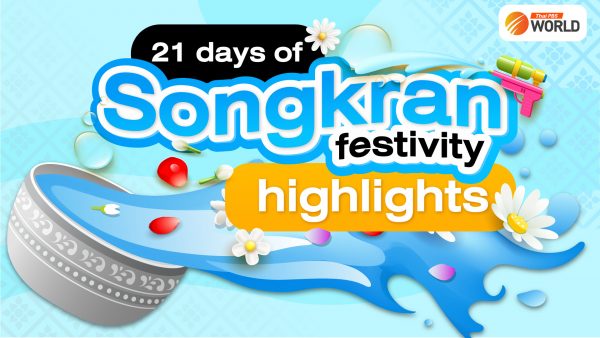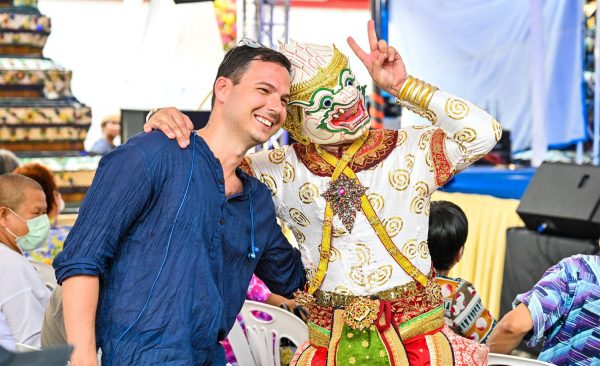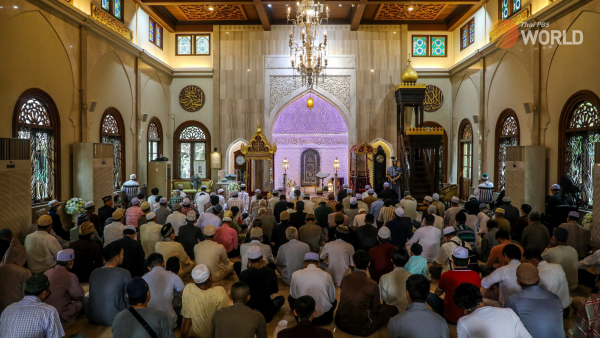Khun Phaen tale with a new twist does justice to its heroine

The new interpretation of “Khun Chang, Khun Phaen” in a TV series has made the ancient folktale popular with new generation of viewers
The TV series “Wanthong” on One Channel 31, the last episode of which was recently aired, has become the talk-of-the-town for a number of reasons. On the commercial side, the closing episode aired on April 20 received the all-time high in ratings for the TV station, knocking the regular soap opera champion Channel 7 off its perch. In addition, the hashtag “Wanthongtonjob” [meaning the closing episode of Wanthong (series)] on Twitter was the top trending item of the evening, with more than 700K tweets about the series.
But perhaps more importantly, the TV drama has drawn attention to Thailand’s not-so-good gender traditions. This has long been a society where men are more privileged in love and sex, particularly if they have good looks or money, while women, no matter how beautiful, are restricted by their gender. Many Thai dramas and novels revolve around the gender imbalance, with male characters enjoying more freedom in romance while females are restricted to a “one-love-one-heart” role if they are heroines.
Director Sant Srikaewlaw was spot on in twisting the end of the classic literary work to break such gender traditions. For centuries, the name Wanthong, like its character in the folklore, has been associated with a woman loving two men, even appearing in a rhyme in Thai “Wanthong Song Jai”. Sant addressed the issue and interpreted the story to provide justice for the heroine. In 2021, Wanthong is not only free of such an unjust condemnation but also praised as an advocate of women’s rights in her time.
Naming the period drama “Wanthong” was a bold move and clearly signalled that the director intended to tell the whole tale from Wanthong’s perspective. The classic story has been made into countless films and TV drams but none used the name of leading female character as the title.

The story of a love triangle from the Ayutthaya period, “Khun Chang, Khun Phaen” has again been immortalised. This time, the period drama is interpreted through the view of Wanthong, a young and beautiful woman who rises to fight for her dignity. She wants her voice to be heard and she thinks women and men should be equal. “In my life, not once did I have a chance to choose,” said Wanthong in the series as she recalled her fate. In the end, to her delight she could at least decide not to be with either of the two men.
The original tale made Wangthong a bad woman as people condemned her for being in a love triangle and seemingly unable to choose with whom she wants to be, Khun Chang or Khun Phaen. However, in the new interpretation Wanthong, played by Davika “Mai” Hoorne, is portrayed as a freedom fighter who received moral support from fellow women and even the King and his wife. She made it clear that she was treated unfairly and that no woman should be put in her position and treated as an object. They should have choices and design their own life paths.
And the TV series also had another twist, one that saw Wanthong alive and becoming an ubasika (Buddhist pilgrim) living in a cave. Khun Phaen asked his ghost aid to hide her and he made his ghost baby boy play Wanthong in the execution. Viewers were surprised and delighted because no one saw it coming. Little did the audience expect that the ending would be other than that of the original.
The director was brave enough to end the series in a completely different way from the classic tale that originated during Ayutthaya period and saw its epic poem published in 1917. Although Wanthong, from the Khun Chang-Khun Phaen poem, is a classic, it is hard for the new generation to swallow that the heroine’s crime is that she could not decide between the two men.

Wanthong became endearing to all viewers like never before. Many viewers could feel the hardship and emotional struggle she went through. Although they expected her to be beheaded, everyone still watched until the end. “I’m going to prepare box of tissues before watching the last episode of Wanthong on YouTube tonight,” said one viewer on Twitter. Another comment read: “Khun Phaen, you’re a genius. You saved Wanthong!”
Obviously, the courageous interpretation by director Sant and his screenwriting team has struck a chord with the public. This is the first time that the whole tale gave “space” to Wangthong to tell her side of a story. The gender balance has been provided and Wanthong portrayed in such a way that she represented women’s voices and fought for equality.
Perhaps the best summary is the scene when the King, Phra Panwasa talked to his queen in the palace as Wanthong was about to be executed.
King: “But Wanthong’s ideas are too progressive.”
Queen: “Or perhaps it’s us who don’t catch up with the people.”
Wanthong was politically correct about equal rights and freedom but she was born at the wrong time. However, Wanthong the Series by One Channel came at the right time and was overwhelmingly successful.
By Veena Thoopkrajae






